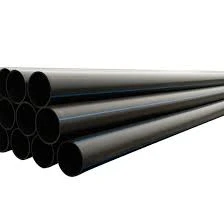डिसेंबर . 05, 2024 04:44 Back to list
HDPE Pipe Sprinklers for Efficient Irrigation Solutions in Agriculture and Landscaping
Understanding HDPE Pipe Sprinklers Benefits and Applications
High-Density Polyethylene (HDPE) pipe sprinklers are revolutionizing irrigation practices in both agricultural and landscape management sectors. With their robust design and efficient functionality, HDPE pipe sprinklers emerge as an excellent choice for anyone looking to enhance their irrigation systems. This article delves into the benefits and applications of HDPE pipe sprinklers, expounding on why they have become a favored choice among farmers and horticulturists alike.
One of the primary advantages of HDPE pipe sprinklers is their exceptional durability. HDPE is known for its high resistance to impact, chemicals, and ultraviolet (UV) radiation. This means that HDPE pipe sprinklers can withstand the harsh environmental conditions often encountered in agricultural settings. Unlike traditional materials that may corrode or degrade over time, HDPE remains intact, resulting in lower maintenance costs and longer lifespan for the irrigation system.
Another significant benefit of HDPE pipe sprinklers is their lightweight nature, which facilitates easy installation and handling. Farmers and landscapers can quickly transport, set up, and adjust their sprinkler systems as needed without the need for heavy machinery or extensive labor. Moreover, the flexibility of HDPE allows it to withstand bending and deformation, making it ideal for various terrain types.
Understanding HDPE Pipe Sprinklers Benefits and Applications
Environmental considerations play a pivotal role in agricultural practices today. HDPE is a recyclable material, making it an environmentally friendly option for irrigation systems. By choosing HDPE pipe sprinklers, farmers can not only optimize their water usage but also contribute to sustainability efforts by reducing plastic waste.
hdpe pipe sprinkler

In terms of applications, HDPE pipe sprinklers are widely used in various sectors. In agriculture, they support the irrigation of crops, increasing yield and promoting healthy plant growth. With the global emphasis on food security, utilizing efficient irrigation systems like HDPE pipe sprinklers can significantly impact agricultural productivity.
In landscaping, HDPE pipe sprinklers are employed for lawns, gardens, and parks. Homeowners and landscape professionals value their efficiency and reliability, as these systems help maintain green spaces with minimal effort. Additionally, sports fields and golf courses benefit from HDPE pipe sprinklers, ensuring that grass surfaces remain lush and playable throughout the year.
Moreover, the versatility of HDPE allows it to be used in conjunction with other irrigation technologies, such as drip irrigation systems. This adaptability enables integrated approaches to water management, maximizing efficiency and effectiveness.
The installation of HDPE pipe sprinklers can also enhance the resilience of irrigation systems to fluctuating climate conditions. As water scarcity becomes an increasingly critical issue worldwide, having a reliable and efficient irrigation system is essential for adapting to changes in weather patterns. HDPE pipe sprinklers can be integrated with smart irrigation technologies that monitor soil moisture and weather conditions, allowing for more precise irrigation scheduling.
In conclusion, HDPE pipe sprinklers represent a significant advancement in irrigation technology. Their durability, lightweight design, and efficiency in water usage make them a preferred choice across various sectors. As we face increasing challenges related to climate change and resource management, embracing innovative solutions like HDPE pipe sprinklers will be key to achieving sustainable agricultural practices and maintaining vibrant landscapes. Whether you are a commercial farmer or a dedicated gardener, investing in HDPE pipe sprinklers could prove vital for optimizing your irrigation needs and ensuring the health of your plants.
-
HDPE Water Supply Pipes Durable & Corrosion-Resistant Solutions
NewsMay.16,2025
-
4 Inch PVC Irrigation Pipe Durable & Corrosion-Resistant Multiple Sizes
NewsMay.15,2025
-
Triangle PP Welding Rods - High-Strength PVC, PE & Plastic Solutions
NewsMay.15,2025
-
Premium PVC & HDPE Plastic Sheets 4x8 Durable & Lightweight
NewsMay.14,2025
-
Durable & Waterproof PVC Cladding Sheets 4x8 Thin PVC Panels
NewsMay.14,2025
-
UPVC Electrical Conduit Pipes Durable, Fireproof & Lightweight 60-Year Warranty
NewsMay.13,2025

